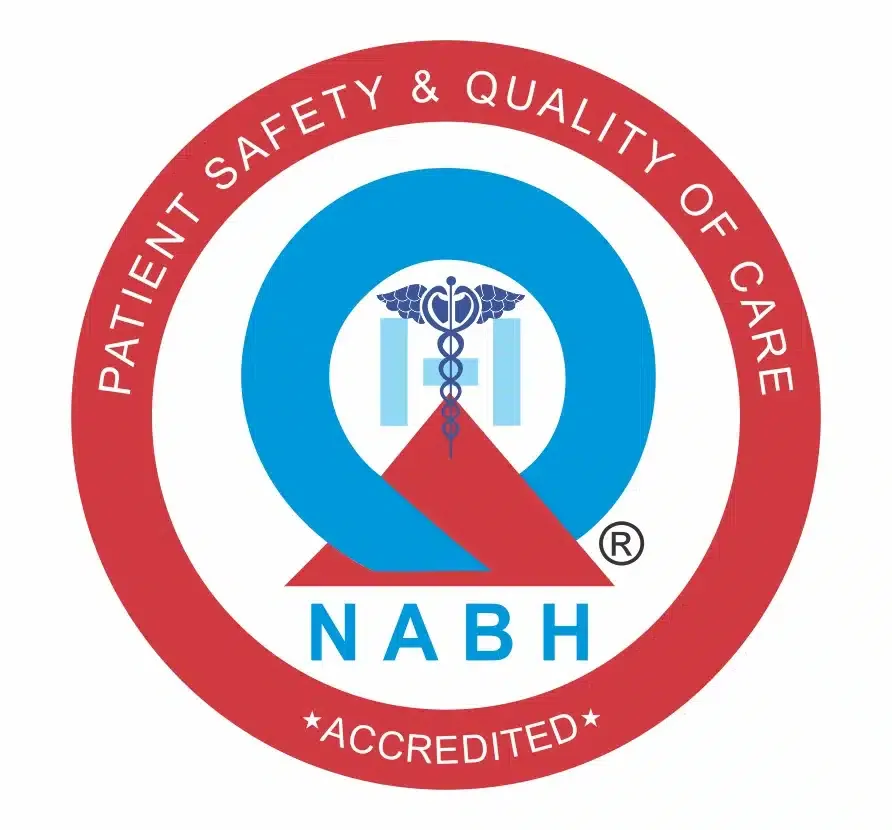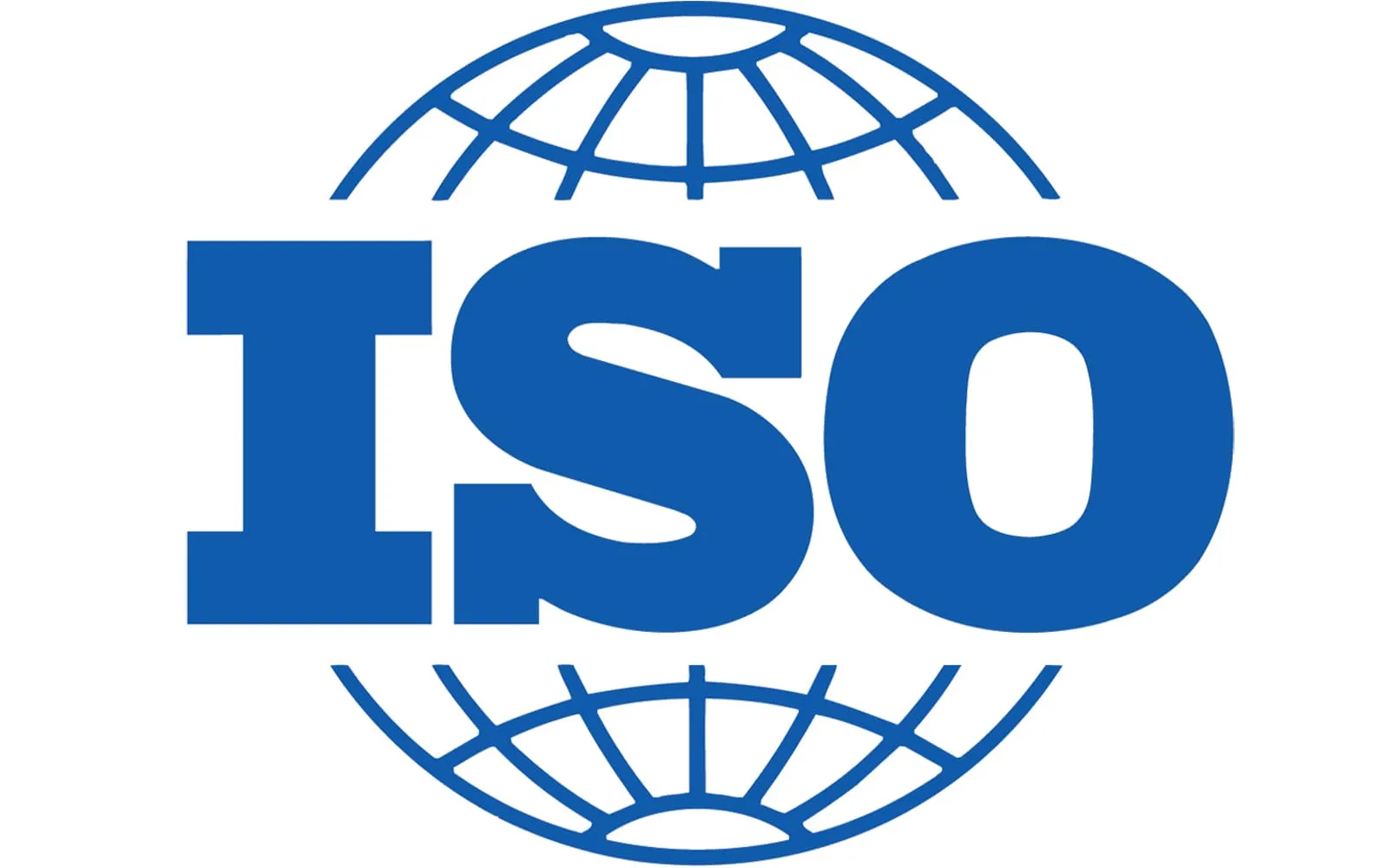
CyberKnife Treatment Cost in India
About CyberKnife Treatment
What Is CyberKnife Treatment?
CyberKnife is a highly advanced, non-invasive treatment that uses robotic technology to deliver targeted radiation to tumors and other abnormalities. Unlike traditional radiation therapy, which may affect surrounding healthy tissues, CyberKnife offers pinpoint precision, making it ideal for treating tumors located in hard-to-reach or delicate areas of the body.
It is not a surgical knife, as the name might suggest. Instead, it uses a combination of real-time imaging and computer-controlled robotics to focus high doses of radiation directly at the tumor while minimizing exposure to nearby healthy tissue. This system adjusts for patient movement, including breathing, which allows for safer and more effective treatments without the need for immobilization devices or invasive procedures.
CyberKnife is commonly used to treat various types of cancer and benign tumors, including:
- Brain tumors
- Prostate cancer
- Lung tumors
- Spine tumors
- Liver and pancreatic tumors
It is often recommended for patients who are not good candidates for surgery or for tumors that are located near vital organs. Because the treatment is delivered with extreme precision, CyberKnife is often chosen for its ability to treat complex cases with minimal side effects.
What Makes CyberKnife Different From Other Radiation Therapy Systems?
CyberKnife stands out because it uses a robotic arm and real-time image guidance to deliver highly focused radiation beams with sub-millimeter accuracy. Unlike other radiosurgery systems such as Gamma Knife or traditional linear accelerators, CyberKnife tracks tumor movement during treatment, especially important for tumors in the lungs, liver, or spine that shift with breathing. It also doesn't require rigid frames or invasive head immobilization, making it completely non-invasive and more comfortable for patients. Plus, it can treat a broader range of tumors across the body, not just in the brain, with fewer treatment sessions and minimal side effects.
How Does CyberKnife Work?
CyberKnife treatment combines advanced imaging, computer-controlled robotics, and a linear accelerator to deliver high-dose radiation with surgical accuracy — all without making a single incision. The entire CyberKnife process is carefully planned and executed in several key steps.
- Planning Stage: Before treatment begins, the patient undergoes detailed imaging studies like CT, MRI, or PET scans. These images help the treatment team determine the exact size, shape, and location of the cancerous tumor. Using these images, a personalized treatment plan is created to map out the optimal radiation delivery path.
- Real-Time Imaging Guidance: During the procedure, CyberKnife continuously tracks the tumor using real-time imaging. It allows the robotic arm to adjust the direction of radiation as the patient breathes or moves slightly. The system compensates for movement in real time, ensuring the beam stays focused on the tumor.
- Robotic Delivery of Radiation: A robotic arm moves around the patient delivering radiation from multiple angles. This unique feature helps concentrate the dose at the tumor site while sparing healthy tissues. Each session lasts between 30 - 90 minutes, and most patients do not need anesthesia.
CyberKnife is usually an outpatient procedure. Most cancer patients can resume normal activities the same or the next day, as there is no incision, no recovery from surgery, and no hospitalization required.
What are the Benefits of CyberKnife Over Traditional Radiation?
CyberKnife offers several distinct advantages compared to conventional radiation therapy and surgery. Here are the most important benefits:
- Non-Invasive and Painless: CyberKnife requires no incisions, anesthesia, or hospital stays. Patients lie comfortably during treatment and often return home the same day.
- Extreme Precision: Thanks to its robotic technology and real-time tracking, CyberKnife can treat tumors with sub-millimeter accuracy. This precision is especially beneficial for tumors near sensitive organs like the brain, spinal cord, or lungs.
- Fewer Treatment Sessions: Traditional radiation therapy may require 25–40 sessions. In contrast, CyberKnife usually needs only 1–5 sessions, reducing the time and stress involved in cancer care.
- Minimal Side Effects: Because the radiation is focused only on the tumor and avoids healthy tissues, patients experience fewer side effects like fatigue, nausea, or skin damage.
- Suitable for Inoperable Tumors: CyberKnife is often used when surgery is too risky or impossible, such as in elderly patients, those with other health conditions, or tumors located in hard-to-reach areas.
- No Recovery Time: Since there's no surgery, there's no wound healing or downtime. Patients can often return to work or daily life shortly after treatment.
These benefits make CyberKnife a game-changer for people looking for a safer, faster, and more effective way to treat complex tumors.
Send Query
About CyberKnife Treatment in India
Cost of CyberKnife Treatment in India
The cost of CyberKnife treatment in India ranges from ₹5,00,000 to ₹8,00,000 (approximately $6,000 to $9,400), depending on the complexity of the case and the number of sessions required. It is significantly lower compared to countries like the United States or the United Kingdom, where similar treatments can cost between $30,000 and $55,000 or even more.
The pricing in India remains affordable not because the technology is inferior (in fact, many Indian hospitals use the latest generation CyberKnife VSI systems), but because of lower operational and hospital infrastructure costs in the country. It allows patients to receive world-class care at a fraction of the international price.
Below is a general breakdown of what the cost may include:
- Pre-treatment consultation and imaging (MRI, CT, PET scans)
- Personalized treatment planning
- CyberKnife sessions (1–5, depending on the tumor)
- Post-treatment review and follow-up
- Coordination with an international case manager
Unlike conventional radiotherapy, which may stretch over many weeks and require hospitalization in some cases, CyberKnife is usually done as an outpatient procedure. It helps reduce the overall treatment cost, as there's no room charge, surgical fee, or extended recovery involved.
For example, a single-session CyberKnife treatment for a small brain tumor might cost around $6,000 in India, while a multi-session course for a lung or spine tumor may cost closer to $9,000. Some hospitals may offer all-inclusive medical travel packages that combine treatment, diagnostics, stay, and local transport, making it easier for overseas patients to plan their trip with transparency.
CyberKnife Cost Comparison: India vs Other Countries
CyberKnife treatment is known for its precision and non-invasive nature, but in many developed countries, it comes with a hefty price tag. India stands out as a preferred medical tourism destination for this advanced treatment because of its affordability without compromising on quality.
Country | Average Cost (USD) |
| India | $6,000 – $9,400 |
| United States | $35,000 – $55,000 |
| United Kingdom | $25,000 – $40,000 |
| United Arab Emirates (UAE) | $20,000 – $30,000 |
| Australia | $28,000 – $45,000 |
| Singapore | $18,000 – $30,000 |
Why the Huge Difference?
The main reason India offers lower costs is not due to outdated equipment or lower standards. In fact, many Indian hospitals are equipped with the same CyberKnife VSI models used in leading Western cancer centers. The affordability is primarily a result of:
- Lower operational and staffing costs
- Government-regulated medical services
- Competitive healthcare ecosystem
- Favorable exchange rates for international patients
Real-Life Example
A patient in the US diagnosed with a brain tumor may pay around $50,000 for CyberKnife treatment, excluding travel and post-treatment support. The same procedure in India (including pre-scans, treatment sessions, and a few days of recovery stay) might cost just $7,500, even with premium hospital facilities.
What are the Factors Affecting the Cost of CyberKnife in India?
Although the average cost of CyberKnife treatment in India ranges from $6,000 to $9,400, the exact amount can vary depending on several medical and logistical factors. Understanding these variables can help patients plan their budget more accurately and avoid unexpected expenses.
- Type and Location of Tumor: Tumors in sensitive areas like the brain or spine require more precise planning and delivery, which increases treatment complexity and cost.
- Number of Sessions Required: CyberKnife may be delivered in 1 to 5 sessions. More sessions mean longer treatment time, additional imaging, and higher overall cost.
- Hospital and City: Hospitals in metro cities like Delhi or Mumbai may charge more due to advanced infrastructure, but they often offer the latest CyberKnife systems.
- Imaging and Diagnostics: Pre-treatment scans like MRI, CT, or PET are crucial for planning. If new scans are required, they can raise the total package cost.
- Tumor Re-Treatment or Recurrence: Patients undergoing CyberKnife for recurrent tumors may require more detailed planning, resulting in additional cost for safety and precision.
- Pre- and Post-Treatment Consultations: Multiple consultations with specialists before and after treatment may be billed separately if not part of an all-inclusive package.
- Accommodation and Travel Support: Medical tourism packages that include hotel stays, meals, and transport can slightly increase costs but provide better convenience.
- Currency Fluctuations: For overseas patients, the exchange rate between their own currency and the Indian rupee can impact the final treatment cost.
Why Choose India for CyberKnife Radiosurgery?
India is a global leader in advanced cancer treatments like CyberKnife radiosurgery, not only for its affordability but also for the world-class quality of care. Patients from around the world are increasingly turning to Indian hospitals for CyberKnife therapy because of the following key advantages:
- Advanced Technology at Lower Cost: India is home to several state-of-the-art hospitals equipped with the latest CyberKnife VSI systems, which offer superior precision and real-time motion tracking. Despite using the same high-end technology as top Western hospitals, the cost in India is up to 80% lower, making it highly cost-effective for international patients.
- Expertise of Radiation Oncologists: Indian specialists are globally trained and highly experienced in performing CyberKnife procedures across a wide range of tumor types. Many oncologists are certified by international boards and have treated thousands of cases using this advanced platform.
- Internationally Recognized Hospitals: India boasts a large number of NABH- and JCI-accredited hospitals, two of the highest standards for healthcare quality and patient safety. These institutions cater specifically to international patients, ensuring a seamless and reliable treatment journey.
- Personalized Patient Care: CyberKnife treatment plans in India are created by multidisciplinary teams involving radiation oncologists, medical physicists, radiologists, and case managers. This personalized, collaborative approach ensures that each patient receives the most effective and targeted therapy.
- No Waiting Lists: Unlike in some Western countries where patients face long waiting periods for CyberKnife, Indian hospitals can often schedule treatment within a few days of arrival, especially for international patients.
- English-Speaking Medical Staff: Most doctors, nurses, and staff in Indian hospitals are fluent in English, eliminating communication barriers and making the treatment process more comfortable for patients from the US, UK, Middle East, Africa, and other regions.
- Cultural Sensitivity: Indian medical tourism services are known for being patient-friendly, respectful of cultural preferences, and attentive to dietary, religious, and personal needs during the treatment stay.
Support Services for International Patients
Choosing to travel abroad for CyberKnife treatment is a major decision, and India makes it easier by offering dedicated support services tailored specifically for international patients. From the moment you inquire to the day you fly back home, dedicated teams in Indian hospitals ensure every aspect of your journey is smooth, safe, and stress-free.
- Medical Visa Assistance: Hospitals in India provide official medical visa invitation letters to help expedite the visa process. Their international patient departments guide you through the documentation and embassy requirements, saving valuable time.
- Airport Pick-Up and Drop-Off: On arrival, most hospitals arrange complimentary airport transfers, ensuring you are welcomed and transported safely to your accommodation or hospital without having to navigate a foreign country on your own.
- Dedicated Case Managers: Each international patient is assigned a personal case manager, who coordinates all appointments, scans, and doctor consultations.
- Language Interpretation Services: To overcome any communication barriers, hospitals offer professional interpreters fluent in Arabic, French, Russian, Swahili, and other common languages.
- Customized Treatment Packages: Hospitals offer transparent, fixed-price packages for CyberKnife treatment that often include consultations, diagnostics, treatment sessions, and follow-up care.
- Assistance with Accommodation: Whether you prefer to stay in a hotel, guest house, or hospital-provided lodging, your patient coordinator will help book clean, safe, and nearby accommodations suited to your comfort level and budget.
- Follow-Up and Remote Support: Even after your return home, hospitals offer teleconsultations and report reviews to monitor your progress. You can stay connected with your treating doctor and get expert guidance if needed.
These support services are a major reason why patients from Europe, Africa, the Middle East, Central Asia, and beyond trust India for complex treatments like CyberKnife, with the reassurance that they will be well taken care of from arrival to recovery.
CyberKnife Treatment Cost Comparison by Country
Compare CyberKnife Treatment costs across different countries to make an informed decision about your medical treatment.
| Country | Cost Range (USD) | Potential Savings | Action |
|---|---|---|---|
INIndiaCurrentBest Value | $6,000 - $9,400 | — | Get Quote |
Note: Costs may vary based on hospital choice, room type, additional services, and individual medical requirements. Contact us for a personalized quote.
Leading Hospitals for CyberKnife Treatment in India

SP Medifort Hospital
SP Medifort, Thiruvananthapuram, is a JCI-accredited, 475-bed multi-super-specialty hospital spread across 500,000 sq. ft. The hospital houses 10 modu...
Accreditations


Facilities

CARE Hospitals, Banjara Hills, Hyderabad
CARE Hospitals, Banjara Hills, Hyderabad, is a 435-bed NABH and NABL-accredited multispecialty hospital with 120 critical care beds. Established in 20...
Accreditations

Facilities

AIG Hospitals, Gachibowli, Hyderabad
AIG Hospitals, Gachibowli, Hyderabad, is a 1,000-bed, JCI- and NABH-accredited super-specialty hospital spanning 1.7 million sq. ft. It is the flagshi...
Accreditations


Facilities

Gleneagles Global Health City, Chennai
Gleneagles Global Health City, Chennai, is a 200-bed quaternary-care hospital and part of the IHH Healthcare network, one of the world’s largest priva...
Accreditations

Facilities

MGM Healthcare, Chennai
MGM Healthcare, Chennai, is a 400-bed quaternary-care super-specialty hospital accredited by JCI, NABH, and NABL. The hospital features 100 ICU beds,...
Accreditations


Facilities

MIOT International, Chennai
MIOT International, Chennai, is a 1,000-bed NABH- and NABL-accredited multispecialty hospital serving patients from more than 130 countries. Establish...
Accreditations

Facilities

Apollo Hospitals, Greams Road, Chennai
Apollo Hospitals, Greams Road, Chennai, is the flagship hospital of the Apollo Group. Established in 1983, it has 560 beds, 46 ICUs, and 15 operating...
Accreditations



Facilities

HCG Cancer Centre, Mumbai
HCG Cancer Centre, Borivali, Mumbai, is an NABH- and AACI-accredited comprehensive cancer hospital established in 2019. The 119-bedded facility includ...
Accreditations


Facilities

Apollo Hospitals, Navi Mumbai
Apollo Hospitals, Navi Mumbai, established in 2016, is a 500-bed JCI- and NABH-accredited quaternary care hospital offering advanced treatment across...
Accreditations


Facilities

Marengo Asia Hospitals, Faridabad
Marengo Asia Hospital, formerly QRG Health City, is a 325-bed NABH and NABL-accredited multispecialty hospital in Faridabad. It offers advanced care i...
Accreditations

Facilities
FAQ
Browse by Department
Explore procedures in different departments
Related Procedures
Other procedures in this department
Get a Free Treatment Plan
Our website uses cookies. By clicking on accept you give your consent to the use of cookies as per our Privacy Policy.
